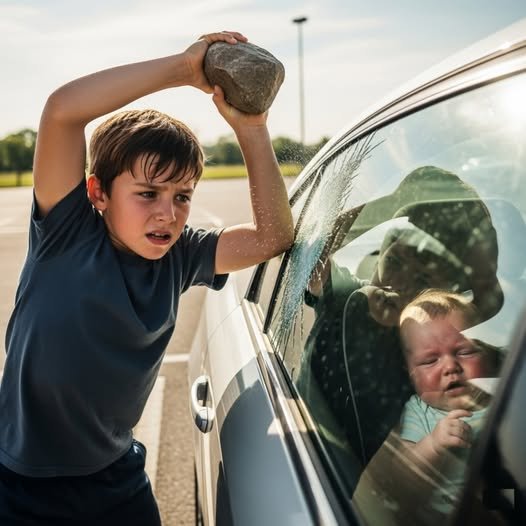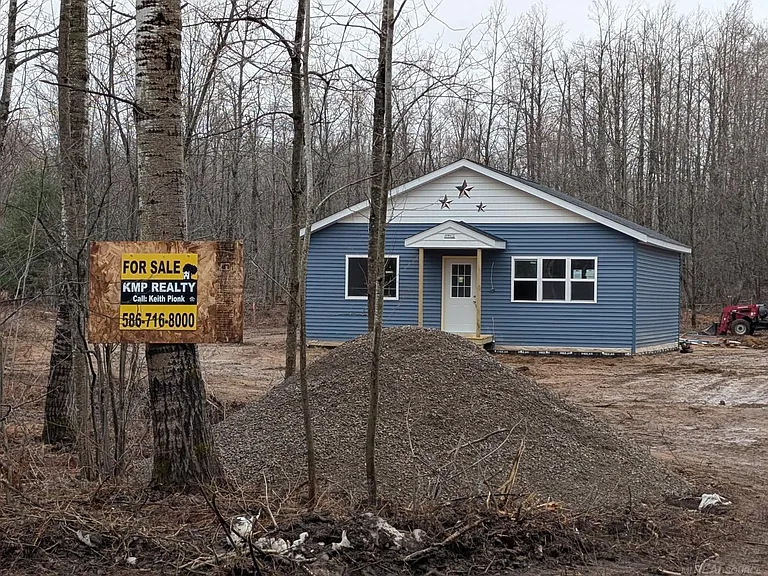They filmed me crying on my last day
“They filmed me crying on my last day—then posted it for likes.”
I didn’t even know they were recording. One of the younger teachers had their phone out, said something about “capturing the moment.”
I suppose it was meant kindly. But later that night, when my daughter showed me the video online—me with swollen eyes and chalk dust on my cardigan, waving goodbye to an empty classroom—it felt like a funeral they turned into content.
A thousand likes.
A hundred comments.
“Thank you for your service, Mrs. Daniels ![]() ”
”
“You’re a hero.”
“You changed my life.”
But they weren’t from my kids. They were strangers. And heroes don’t sit in quiet kitchens wondering if they did enough.
I started teaching in 1973, the year after my husband died in a factory accident. I was twenty-six with a newborn and a teaching license. They assigned me to Room 12 at McKinley Elementary, a red brick building with squeaky floors and the smell of pencil shavings and paste. My salary was $8,200 a year. And I was grateful.
Back then, a teacher had weight. Parents shook your hand and meant it. Kids sat up straight when you walked in. And chalk—Lord, chalk was power. I could quiet a class just by slapping it once against the board. We didn’t have “smart boards.” But we had standards. You showed up, you tried, or you got held back. No sugarcoating. No emails from moms saying, “He’s feeling overstimulated today.”
I stayed in that same room for forty-one years. Watched the walls get repainted three times. Watched books go from hardbound to digital. Watched children stop looking up because their faces were glued to glowing screens.
They stopped teaching cursive in 2010. Said it was “obsolete.” That broke something in me. I’d spent decades helping little fingers form their first “M” with pride, their faces lighting up like they’d written poetry. When they tossed handwriting, it wasn’t just letters they erased—it was care, discipline, self-worth.
I once had a boy named Marcus. Tough home. Dad was in jail. Mom was trying her best, but tired. He got in trouble every week for swearing or fighting. But in his quiet moments, he’d draw pictures of trucks and write tiny stories in the margins.
“Miss Daniels,” he said once, “I ain’t gonna be nothin’, right?”
“You’re going to be a man people can count on,” I told him.
He cried. First time I’d ever seen him cry.
Years later, he showed up on the last day of school in 2009. Taller than me. Work boots, oil under his nails. “Got a baby girl now,” he said. “I still write her bedtime stories.” He hugged me so hard I thought my ribs cracked. That’s the moment I kept in my heart. Not the likes. Not the applause. Just that.
The last ten years, though… things changed fast.
I had to learn Google Classroom and Zoom in my sixties. Spent more time on training modules than teaching. Parents stopped coming to conferences. Kids stopped looking me in the eye. I remember once asking a student to read aloud and he said, “You can’t make me. My mom’s a lawyer.”
He wasn’t wrong.
The discipline we built our futures on had become a lawsuit waiting to happen.
They took down the flag in the corner. Said it was “too political.” They stopped morning pledges. They shortened recess. They started calling Christmas programs “Winter Celebrations.” And when I said, “Merry Christmas,” one mother emailed the principal with a complaint.
So I stopped saying it.
On my last day, they gave me a plaque. The school board sent a card. A few kids brought flowers—mostly the ones raised by grandparents. And then came the camera. My throat clenched. I couldn’t say anything without tears. Forty-one years, and I couldn’t find a single word to sum it up.
The bell rang. The hallway echoed with sneakers and shouting. And suddenly, it was over.
I erased the chalkboard one final time. Just like always. Long strokes. Quiet. Reverent.
And that’s when they filmed me.
I didn’t tell them what they really took.
They took the quiet respect of a boy standing when you entered the room. They took the beauty of a child’s handwriting, crooked and proud. They took the time—God, the time—we once had to care. To see. To listen. Now everything’s fast, automated, branded, optimized.
But they didn’t take my memories.
I still keep a shoebox of old letters under my bed. Crayon-scribbled notes. Valentine cards. One says: “To Mrs. D. You make me not scared to read.”
That’s my real resume.
I still run into former students. At the grocery store. At church. At the DMV. Some are nurses. Some are janitors. Some, I think, just made it through.
One woman—Angela—found me last Christmas. She hugged me and whispered, “You saved me.” I didn’t know what to say. I didn’t remember her at first. But then I saw it in her eyes—the scared third grader who used to hide her lunch money in her sock.
No, I didn’t save them all.
Some fell through cracks I couldn’t fill. Some disappeared into violence, addiction, silence. I carry them too. Every one. Teachers don’t forget the faces—we just bury them under the ones we managed to reach.
Now I sit in this quiet house, a widow again, older and slower. The world outside spins too fast. The news screams. The kids don’t come to visit. But sometimes—when the light hits just right and the wind sounds like children running down a hall—I remember what it felt like to matter.
And I do believe I did.
Not because of the video.
Not because of the likes.
But because somewhere out there…
A grown man is writing bedtime stories.
A mother is teaching her child to say please and thank you.
And maybe, just maybe, a chalkboard still stands in some quiet room—
waiting for a new pair of hands to write something that matters.






